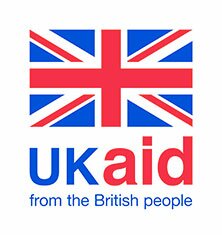Resource centre
Brief: Towards shock-responsive social protection: lessons from the COVID-19 response in Pakistan
This policy brief draws on key learnings from the Pakistan research report on the social protection responses to COVID-19. The brief provides analysis of the factors that enabled and constrained the effectiveness of the delivery of social protection in Pakistan and also provides recommendations to improve preparedness to future shocks including the need to more clearly define provincial mandates on shock-responsive social protection
Brief: Towards shock-responsive social protection: lessons from the COVID-19 response in Uganda
This policy brief presents highlights from the Uganda country case study on the social protection responses to COVID-19. The brief summarises the key findings and sets out recommendations to strengthen the foundational social protection systems and enhance the ability of the sector to respond to future shocks.
Brief: Towards shock-responsive social protection: lessons from the COVID-19 response in Kenya
This policy brief summaries the key findings and recommendations from the Kenya country case study on the social protection responses to COVID-19. The brief provides an analysis of the key enablers and constraints to the effective delivery of the social protection response in Kenya. The brief also provides recommendations and actions to enhance preparedness for future shocks, including developing an institutional framework to guide the design, implementation and coordination of future shock responses.
Towards shock-responsive social protection: lessons from the COVID-19 response in Pakistan
The stringent lockdown measures and global economic slowdown, due to COVID-19, are likely to increase the poverty rate in Pakistan by 35 percentage points in urban areas and 32 percentage points in rural areas. The report documents the Government of Pakistan’s social protection response to mitigate the impact of COVID-19 on vulnerable populations. It also analyses the factors that enabled and constrained the effectiveness of the response, at the policy and operational levels. The report finds that the response achieved impressive coverage in a timely and effective manner, enabled by government ownership and coordination. At the same time, the response’s impact on poverty is estimated to be marginal due to an inadequate benefit value driven by financing constraints. Finally, the report also provides an assessment of the response in terms of comprehensiveness and gender and social inclusion considerations.






